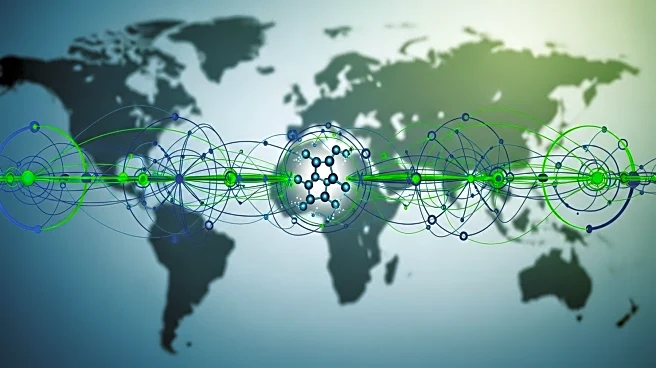What is the story about?
What's Happening?
Brazil has recently escalated antidumping duties on polyethylene (PE) imports, targeting U.S. and Canadian products with tariffs as high as $238.49 per metric ton. This move is part of a broader strategy by the Lula administration to protect domestic producers like Braskem from what it perceives as unfair competition. The measures have sparked a geopolitical and economic shift in the plastics and petrochemicals sector, prompting U.S. retaliation with a 40% tariff on Brazilian imports. This tit-for-tat escalation has led to increased uncertainty in global supply chains, with Brazilian importers seeking alternative suppliers in Asia and the Middle East. The situation underscores the need for investors to diversify supply chains and hedge against regulatory volatility.
Why It's Important?
The antidumping measures have significant implications for global trade dynamics, particularly in the plastics sector. By imposing high tariffs, Brazil aims to bolster its domestic industry but risks inflating input costs for manufacturers and consumers. The U.S. retaliation further complicates trade relations, potentially leading to increased costs and supply chain disruptions. For investors, the situation highlights the importance of agility and diversification in sourcing strategies. As Brazil shifts its focus to Asian suppliers, countries like Saudi Arabia and Egypt may gain market share, altering the competitive landscape. The ongoing trade tensions could also impact regional trade agreements and economic partnerships, influencing long-term market stability.
What's Next?
The escalation of trade tensions between Brazil and the U.S. is likely to continue, with both countries exploring new markets and suppliers to mitigate the impact of tariffs. Brazilian importers are expected to increase their reliance on Asian and Middle Eastern producers, while U.S. exporters may pivot to other Latin American markets. Investors will need to monitor these shifts closely, adapting their strategies to navigate the volatile trade environment. Additionally, Brazil's push for a circular economy presents opportunities for investment in recycling infrastructure and secondary materials, potentially reshaping the industry's future.
Beyond the Headlines
The antidumping measures reflect a broader trend of using trade policy as a geopolitical tool. This approach may lead to increased volatility in global markets, but it also presents opportunities for innovation and strategic partnerships. By embracing circular economy frameworks and building contractual flexibility, investors can turn trade tensions into competitive advantages. The situation also raises ethical and legal questions about the fairness of protectionist measures and their impact on global trade relations.















